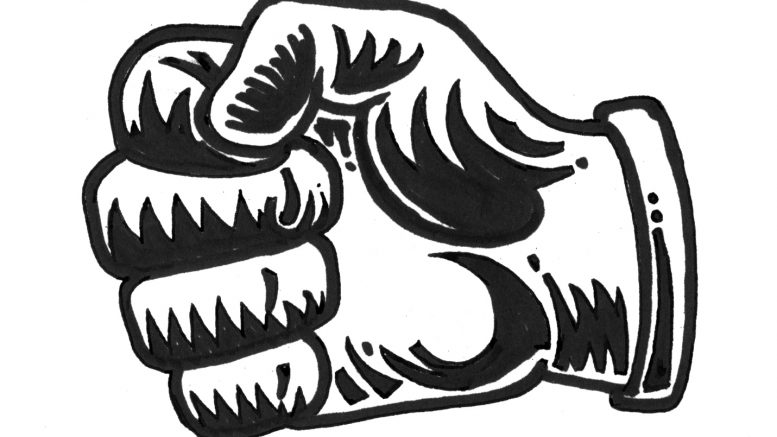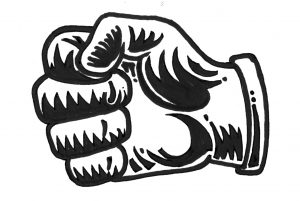Real revolutions are the ones that nobody sees coming.
By Rebecca L. Spang
The Atlantic (4/5/20)
Fear sweeps the land. Many businesses collapse. Some huge fortunes are made. Panicked consumers stockpile paper, food, and weapons. The government’s reaction is inconsistent and ineffectual. Ordinary commerce grinds to a halt; investors can find no safe assets. Political factionalism grows more intense. Everything falls apart.
This was all as true of revolutionary France in 1789 and 1790 as it is of the United States today. Are we at the beginning of a revolution that has yet to be named? Do we want to be? That we are on the verge of a major transformation seems obvious. The onset of the next Depression, a challenge akin to World War II, a national midlife crisis—these comparisons have been offered and many more. But few are calling our current moment a revolution, and some have suggested that the coronavirus pandemic—coinciding as it has with the surge in Joe Biden’s bid for the Democratic presidential nomination and the decline of Bernie Sanders’s—marks the end of any such possibility. “The Coronavirus Killed the Revolution,” declared the headline of a recent essay in The Atlantic by Shadi Hamid, who argued that the COVID-19 crisis makes people crave “normalcy” over deep structural change. As a historian of 18th- and 19th-century France, I think claims like these are mistaken.
Life never went back
An urgent desire for stability—for a fast resolution to upheaval—is in fact absolutely characteristic of any revolutionary era. “I pray we will be finished by Christmas,” wrote one beleaguered member of the French Constituent Assembly to a good friend in October 1789. In reality, of course, the assembly took another two years to finish its tasks, after which another assembly was elected; a republic was declared; Louis XVI was put on trial and executed in January 1793; General Napoleon Bonaparte became “first consul” in 1799 and emperor in 1804; Europe found itself engulfed in wars from 1792 to 1815. In short, life never went back to how it had been before 1789.
The United States may not be having a revolution right now, but we are surely living in revolutionary times. If we do not perceive them as such, it is because news coverage and everyday conversations alike turn on nonhuman agents. Instead of visionary leaders or outraged crowds, viruses, markets, and climate change seem to shape events today. History feels like it is out of our hands.
In hindsight a revolution may look like a single event, but they are never experienced that way. Instead they are extended periods in which the routines of normal life are dislocated and existing rituals lose their meaning. They are deeply unsettling, but they are also periods of great creativity.
People sometimes imagine yesterday’s revolutions as planned and carried out by self-conscious revolutionaries, but this has rarely, if ever, been the case. Instead, revolutions are periods in which social actors with different agendas (peasants stealing rabbits, city dwellers sacking tollbooths, lawmakers writing a constitution, anxious Parisians looking for weapons at the Bastille Fortress) become fused into a more or less stable constellation. The most timeless and emancipatory lesson of the French Revolution is that people make history. Likewise, the actions we take and the choices we make today will shape both what future we get and what we remember of the past.
Analogies between the first months of the French Revolution and our current moment are easy to draw. Anthony Fauci, the infectious-diseases expert whom President Donald Trump often sidelines or ignores, is Jacques Necker, the popular finance minister to Louis XVI. Necker’s firing in early July 1789 was viewed widely as a calamity: “It was like losing your father,” the mathematician and astronomer Jean Sylvain Bailly wrote in his memoirs. The recent spike in American gun and ammunition sales recalls the Parisians who stormed the Bastille Fortress in the hope of finding weapons and gunpowder. (They incidentally released a handful of individuals imprisoned there, but that was not the crowd’s original intent.) The conflict among city, state, and federal officials over coronavirus-related closures directly parallels 1789’s municipal revolutions, in which some cities had leaders who quickly proclaimed devotion to the new National Assembly, while the leaders of other cities remained loyal to the old structures of absolutist royal power and the mayors and aldermen of yet others were violently deposed.
Up for grabs
That comparisons can so easily be made between the beginning of the French Revolution and the United States today does not mean that Americans are fated to see a Reign of Terror or that a military dictatorship like Napoleon’s looms large in our future. What it does mean is that everything is up for grabs. …


